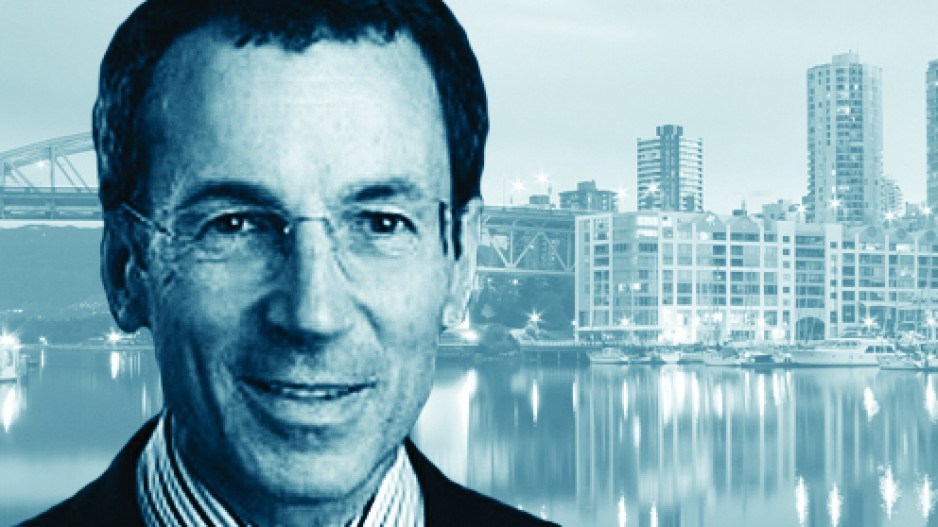It’s pretty clear that the BC Liberals do not see transit improvements as a priority
Transportation is the No. 1 issue for business in Metro Vancouver, according to the Greater Vancouver Board of Trade.
Yes, more pressing than housing affordability and the cost of living, ranked No. 2 and No. 3 – which are, not coincidentally, tied to the availability of transit.
The links between this trifecta of business angst are backed up by a 2016 Angus Reid Global poll commissioned by the Mayors’ Council. Two-thirds of respondents said that better mass transit could help resolve the region’s housing crisis.
The poll backs up the anecdotal data: interminable traffic crawls all over the North Shore, through the Massey Tunnel, and downtown, frequent bus pass-ups on popular routes. Sixty-nine per cent of poll respondents found it “hard” to get around Metro Vancouver.
At current rates of car ownership, we’re cruising toward 700,000 more cars in the region by 2040, with every driver wistfully confident that “there’s always room for one more.” Just to park that many cars bumper to bumper would create a line of cars from here to Sault Ste. Marie, Ontario.
The provincial government’s response to this gridlock is to hit the accelerator on new car infrastructure and idle on investments in transit.
Even though Metro Vancouver has North America’s fourth-highest transit use per capita, our transit service per capita has been declining steadily since the Olympic burst of 2010. The recent opening of the Evergreen Line will slow that decline, but we haven’t added new buses to this region since 2008, even though we’ve grown by the equivalent of a city the size of Burnaby.
Investing in transit is still official provincial policy. In 2008 the province pledged $4.75 billion for transit in its 12-year plan (remember Kevin Falcon?). Today, eight years in, it has spent only $1.1 billion, not even a quarter of the total in the plan. Just when the feds are ready with billions of matching funding ($460 million committed in B.C. to date), unless they turn a corner in the budget, the B.C. government will be decreasing its investment in transit over the next three years. The latest provincial budget figures show that in 2018-19 B.C.’s investments in transit will be the third-lowest in the last decade.
An analysis by the David Suzuki Foundation estimates $400 million a year from the province is the cutoff for reducing traffic congestion by increasing transit ridership, and meeting the 2020 climate change goals spelled out in the 2008 plan. Only in one of the past eight years have we reached even half that amount.
It’s pretty clear that the BC Liberals do not see transit improvements as a priority. Conventional wisdom blames that on their dependence on suburban votes from people trapped in their cars craving new bridges and lanes. They’ve also shown disdain for the regional mayors who publicly prefer integrated planning to quick votes. It’s far easier to promise a big new bridge than to walk frustrated drivers through its complex hidden costs and the greater, cheaper, proven benefits of improved transit and road pricing.
It is also tempting to point to the $1.3 million they’ve received from the New Car Dealers Association since 2005, and cozy relationships with bridge and highway construction firms. The BC Liberals have invested heavily in a car-oriented future, even as they struggle with declining traffic levels on the Port Mann Bridge. More transit and road pricing (such as low tolls on all bridges), the only real solutions to congestion, could be seen as eroding massive money-losing investments in the Port Mann Bridge, and the second 10-lane behemoth en route.
Transportation is a provincial responsibility. It’s well past time for the province to step up to the unprecedented offers of federal cost-sharing – and acknowledge local business concerns – by removing the financial roadblocks to implementing the Mayors’ Council’s 10-year vision. If we don’t seize that money, other cities in Canada will.
Peter Ladner ([email protected]) is the David Suzuki Foundation’s chairman of the board and a board member of the Better Transit and Transportation Coalition. Views expressed here are his own.




